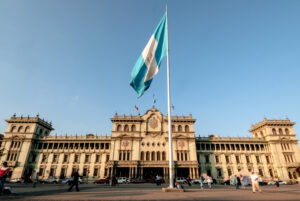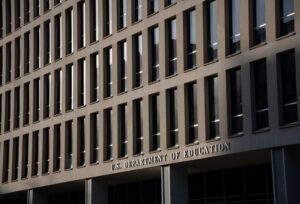Speaking from the country considered to be the most dangerous place for journalists in the Western Hemisphere, Robert F. Kennedy Human Rights President Kerry Kennedy unveiled a new key partnership to protect freedom of expression in Mexico.
Key to its success, Kennedy told a room full of Mexican business leaders at the Hyatt Regency in Mexico City, will be their participation in the push to create a foundation to support investigative journalism, an effort led by human rights organizations and the U.S. Agency for International Development. The effort is the organization’s latest strategy for combating repressive and authoritarian attacks against freedom of expression, assembly, and association.
“I’m here today to tell you that you’re also one of the strongest assurances of a Mexican free press, defending what we at RFK Human Rights like to call civic space,” Kennedy told the group, which included the CEOs of Nestlé Mexico, MetLife, and Philip Morris Mexico; Coca-Cola’s vice president of public affairs; the vice president of external relations for AT&T; and many others.
“From your vantage point as key business leaders, you are uniquely able to promote freedom of expression and press in Mexico by financing journalism projects to guarantee the industry’s sustainability and maintain the quality of investigations,” Kennedy said. “What I’m asking for you today is what you all call ‘ganas,’ the desire and will to win this fight.”
In this era of “fake news,” and what Time magazine has called the “war on truth,” this is a more complex and difficult task than ever. According to the Committee to Protect Journalists, 116 journalists have been killed in Mexico since 1992. Eighty-eight have been killed in Colombia, 24 in Guatemala, and 31 in Honduras during the same period.
The Latin American research organization Global Americans reports that Mexico is the second-most dangerous country for journalists in the world, behind only Iraq.
Freedom of expression is recognized under Articles 6 and 7 of the Mexican Constitution. Yet, while some important efforts have been made by the authorities to provide physical protection to journalists and human rights defenders in Mexico, they have largely failed to address the impunity that surrounds threats and attacks against journalists.
Journalists who investigate corruption, especially at the local level, are at great risk of being attacked by officials. Numerous cases have shown that reporters have been beaten, tortured, and murdered at the order of local officials.
Economics and politics are also affecting the way traditional independent media covers important public interest issues, Kennedy said. Traditional media is Mexico subject to public financing, which often determines the approach and tone of the information that is reported. And while an increasing number of independent digital news sites like Animal Politico and Plumas Atómicas are flourishing in Mexico, these are meant to coexist with, not replace, the traditional independent media outlets, which employ journalists trained to report and write from factually verified, unbiased vantage points.
Robert F. Kennedy Human Rights works to protect press freedoms by highlighting and promoting the work of journalists speaking truth to power, and through our strategic litigation to fight for justice.
Among RFK’s efforts: We have represented the families of slain and imprisoned journalists, including Nelson Carvajal, of Colombia; represented Nigerian journalist Omoyele Sowore; and promoted the importance of a free press through our annual book and journalism awards, which, in celebrating excellence in investigative journalism, amplify the work of journalists reporting on issues that reflect Robert F. Kennedy’s concerns.
In addition, in November 2019, RFK Human Rights and the Vuka! Coalition for Civic Action together launched a task force of advocacy groups that will pursue strategic litigation aimed at protecting crucial civic freedoms around the world. Member organizations will use emblematic cases as vehicles for bringing about broad, far-reaching structural change.
Yet, Kennedy told the group, more must be done to make sure a free and unbiased press has a permanent place in Mexican society.
“We need you to do more, in order to have a greater reach and a broader impact. Your help is desperately needed to combat government impunity, to empower journalists to root out corruption through their investigations and demand greater accountability,” she said. “With your voice at the table, we can far more effectively address the problem.”
Over the past 15 years, the journalism industry has been decimated in the United States, with 1,800 newspapers closing since 2004. Similar trends are playing out in Latin America and around the world.
Several philanthropic organizations have stepped in to help in the short term, by underwriting organizations that strengthen local reporting and support journalists. Kennedy called those efforts “a Band-Aid at best.”
Instead, she said, “publishers need to develop new business models and persuade committed investors to provide needed capital that will empower well-trained journalists to cover local governments without fear.”
The new initiative supported by USAID joins together RFK Human Rights and the Mexican Employers’ Association COPARMEX, with the aim of increasing political leadership and public demand for effective protection, prevention, and prosecution efforts related to the attacks on journalists and human rights defenders in Mexico.
“As business leaders, you not only have the experience, skills, and financial resources to help new or existing media entities develop viable commercial models, but you also have gravitas, commanding respect from local government officials who have threatened journalists’ livelihoods or looked the other way on threats, attacks, and murders,” Kennedy said. “The lives of journalists, and the strength of democracy, are both at stake. I hope you will all recognize the urgency of this moment.”



